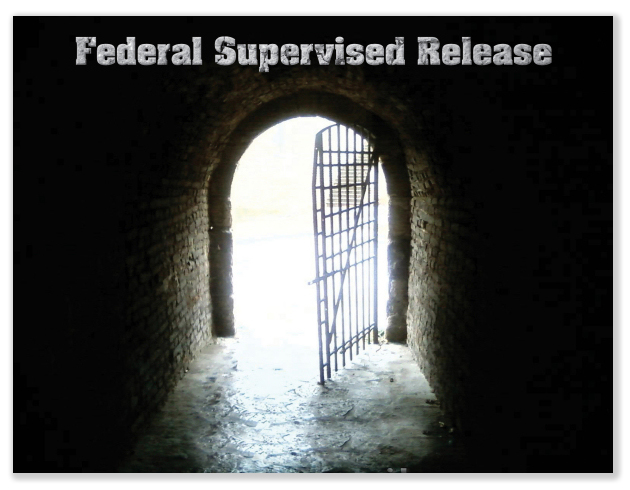We post news and comment on federal criminal justice issues, focused primarily on trial and post-conviction matters, legislative initiatives, and sentencing issues.

SUPREME COURT HOLDS THAT PRETRIAL DETENTION LATER CREDITED TO NEW SENTENCE TOLLS SUPERVISED RELEASE
Jason Mont was on five years’ supervised release after doing time for a federal drug offense, scheduled to end on March 6, 2017. With nine months to go, Ohio arrested him for a marijuana trafficking conspiracy and locked him in the beautiful, high-rise Mahoning County jail.
 Four months later, Jason pled guilty to the pot charge in state court, and then admitted in federal court that he had violated his supervised-release conditions by virtue of the new state convictions. The federal district court finally got around to issuing a supervised release violations warrant on March 30, 2017, four months later, right after Ohio sentenced him to six years in prison for the pot, with credit for the 10 months he had spent in Mahoning County jail.
Four months later, Jason pled guilty to the pot charge in state court, and then admitted in federal court that he had violated his supervised-release conditions by virtue of the new state convictions. The federal district court finally got around to issuing a supervised release violations warrant on March 30, 2017, four months later, right after Ohio sentenced him to six years in prison for the pot, with credit for the 10 months he had spent in Mahoning County jail.
When Jason finally had his supervised release revocation hearing in June 2017, he challenged the district court’s jurisdiction on the ground that his supervised release had expired on March 6. he argued that the expiration of his supervised release deprived the district court of jurisdiction to issue the warrant on March 30. The court rejected the argument, and ordered him to serve 42 months’ federal imprisonment, to run consecutive to his state sentence.
The Sixth Circuit held that Jason’s supervised-release period was tolled under 18 USC § 3624(e), which provides that a “term of supervised release does not run during any period in which the person is imprisoned in connection with a conviction for a . . . crime unless the imprisonment is for a period of less than 30 consecutive days.” Because the roughly 10 months of pretrial custody was held to be “in connection with [Jason’s] conviction,” the appellate court said, his supervised release was tolled in June 2016, and had not yet resumed running as of the time the warrant issued. Thus, there was ample time left on the supervised release term when the warrant issued.
Yesterday, the Supreme Court narrowly agreed. In a 5-4 decision, the Court ruled that pretrial detention later credited as time served for a new conviction is “imprison[ment] in connection with a conviction” and thus tolls the supervised-release term under 18 USC § 3624(e), even if the court must make the tolling calculation after learning whether the time will be credited.
The Court said the text of § 3624(e) compels its conclusion. First, dictionary definition of the term “imprison,” both now and at the time Congress created supervised release, encompasses pretrial detention. Second, the phrase “in connection with a conviction” encompasses a period of pretrial detention for which a defendant receives credit against the sentence ultimately imposed. Congress, like most states, instructs courts calculating a term of imprisonment to credit pretrial detention as time served on a subsequent conviction.
 The statute undeniably requires courts to retrospectively calculate whether a period of pretrial detention should toll a period of supervised release, as evidenced by its inclusion of the 30-day minimum jail stay needed to trigger tolling. The statute does not require courts to make a tolling determination as soon as a defendant is arrested on new charges or to continually reassess the tolling calculation throughout the pretrial-detention period. Inasmuch as the statute does not count jail for less than 30 days as tolling supervised release, it clearly anticipates that the tolling decision need be made only once at the end of the period in question.
The statute undeniably requires courts to retrospectively calculate whether a period of pretrial detention should toll a period of supervised release, as evidenced by its inclusion of the 30-day minimum jail stay needed to trigger tolling. The statute does not require courts to make a tolling determination as soon as a defendant is arrested on new charges or to continually reassess the tolling calculation throughout the pretrial-detention period. Inasmuch as the statute does not count jail for less than 30 days as tolling supervised release, it clearly anticipates that the tolling decision need be made only once at the end of the period in question.
The statutory context also supports the Court’s interpretation. The Supreme Court said it “would be an exceedingly odd construction of the statute to give a defendant the windfall of satisfying a new sentence of imprisonment and an old sentence of supervised release with the same period of pretrial detention. Supervised release is a form of punishment prescribed along with a term of imprisonment as part of the same sentence. And Congress denies defendants credit for time served if the detention time has already ‘been credited against another sentence’.”
Mont v. United States, Case No. 17-8995 (Supreme Court, June 3, 2019)
– Thomas L. Root

